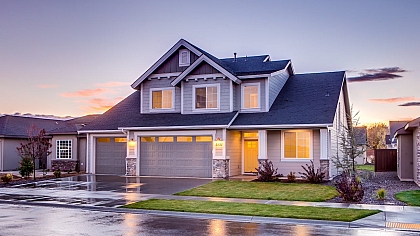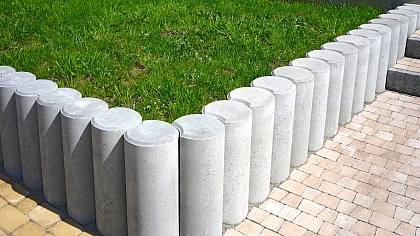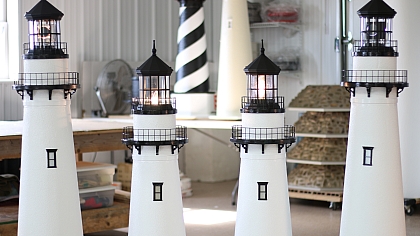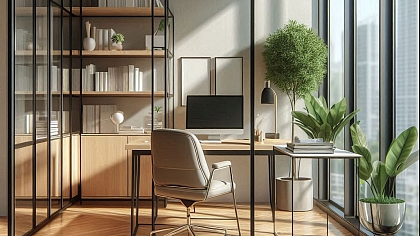
Top 10 Reasons Homeowners Have Home Insurance
Homeownership is a significant milestone in one's life, representing stability, comfort, and a sense of accomplishment. However, owning a home also comes with its share of responsibilities and potential risks.
One step in safeguarding your investment and providing peace of mind is having home insurance. We will explore the top ten reasons why you should have home insurance.
1. Protection Against Natural Disasters
Nature can be unpredictable, and natural disasters such as hurricanes, tornadoes, earthquakes, floods, and wildfires can wreak havoc on your home. Home insurance provides financial protection against these unforeseen events, covering the cost of repairing or rebuilding your home, as well as replacing damaged or lost belongings.
2. Coverage for Fire Damage
House fires are one of the most common and devastating disasters that can strike a home. Home insurance typically covers the cost of repairing or rebuilding your home if it is damaged or destroyed by fire. It also helps replace personal belongings damaged or lost in the fire.
3. Liability Protection
Home insurance doesn't just protect your physical dwelling; it also offers liability protection. If someone is injured on your property, you could be held legally responsible. Home insurance covers legal expenses, medical bills, and damages if you're found liable, providing financial security in the face of unexpected accidents.
4. Theft and Vandalism Coverage
Home insurance extends coverage to protect your possessions from theft or vandalism. If your home is broken into, or if your property is damaged by vandals, your policy can help you recover the value of stolen or damaged items.
5. Mortgage Lender Requirement
Most mortgage lenders require homeowners to have insurance as a condition of the loan. This requirement ensures that the lender's investment is protected in the event of a disaster. Failing to maintain home insurance could result in your lender imposing force-placed insurance, which is typically more expensive and offers less coverage.
6. Peace of Mind
Knowing that your home is protected by insurance provides a sense of security and peace of mind. It means that even in the face of unforeseen disasters, you have a financial safety net to help you rebuild your life and your home.
7. Affordable Premiums
Home insurance policies are relatively affordable, especially considering the amount of coverage they provide. Premiums vary depending on factors such as location, the value of your home, and the type of coverage you choose. Nevertheless, the peace of mind and financial protection they offer often outweigh the cost.
8. Protection for Detached Structures
In addition to your main dwelling, home insurance can also cover detached structures on your property, such as garages, sheds, and fences. This ensures that these structures are repaired or replaced if they are damaged or destroyed by covered perils.
9. Temporary Living Expenses
If your home becomes uninhabitable due to a covered event, such as a fire or storm damage, home insurance can help cover the cost of temporary accommodations, including hotels or rental properties. This means you and your family won't be left homeless during the rebuilding process.
10. Customizable Coverage
Home insurance policies are not one-size-fits-all. You have the flexibility to customize your coverage to suit your specific needs. Whether you want to add additional coverage for valuable items like jewellery or fine art or adjust your deductible to meet your budget, home insurance allows you to tailor your policy to your preferences.
Ways to dramatically lower your home insurance costs
Lowering your home insurance costs is a smart financial move that can free up your budget for other important expenses. Home insurance is essential for protecting your property, but it doesn't have to break the bank. Here are five effective ways to dramatically lower your home insurance costs:
- Shop Around and Compare Quotes: One of the simplest and most effective ways to lower your home insurance costs is to shop around and compare quotes from multiple insurance providers. Each insurance company has its pricing algorithms and underwriting criteria, so rates can vary significantly from one insurer to another. Take the time to request quotes from at least three different companies and compare their coverage options and premiums.
- Increase Your Deductible: Your deductible is the amount you pay out of pocket before your insurance coverage kicks in. By increasing your deductible, you can lower your monthly or annual premiums. However, it's important to choose a deductible that you can comfortably afford in case of a claim. While a higher deductible can save you money in the long run, you should be prepared for the possibility of paying more upfront if you ever need to file a claim.
- Bundle Your Policies: Many insurance companies offer discounts when you bundle multiple policies together. This can include combining your home and auto insurance or adding a renters or umbrella policy to your coverage. Bundling can result in significant savings, often in the range of 10% to 25% off your total premiums. Be sure to inquire about bundling options when obtaining quotes.
- Improve Home Security: Investing in home security measures can not only protect your property but also lower your insurance costs. Installing security systems, deadbolt locks, smoke detectors, and even a sprinkler system can make your home less risky in the eyes of insurers. Some companies offer discounts for such safety features, so it's worth checking with your insurer about potential savings.
- Maintain a Good Credit Score: Your credit score can influence your home insurance premiums. Insurance companies often use credit-based insurance scores to assess risk. Maintaining a good credit score can lead to lower premiums, as it's seen as an indicator of financial responsibility. Pay your bills on time, reduce outstanding debt, and regularly monitor your credit report to ensure it's accurate.
In addition to these five strategies, there are a few more things to keep in mind. First, regularly review and update your policy to ensure you have the right coverage for your needs. Over time, your circumstances may change, and you may need to adjust your coverage accordingly. Secondly, avoid making small claims for minor damage. Frequent claims can cause your premiums to increase, so it's often more cost-effective to pay for small repairs out of pocket.
Home insurance is not just a financial requirement; it is a vital tool for protecting your home, your belongings, and your financial future. The reasons to have home insurance are numerous and compelling.
From safeguarding against natural disasters to providing liability protection and peace of mind, home insurance is an essential investment for any homeowner. Don't wait until disaster strikes; ensure you have the right coverage in place to protect your most significant investment—your home.










